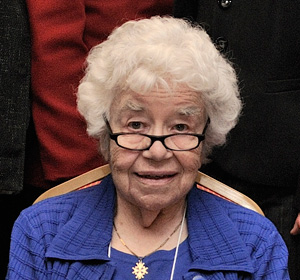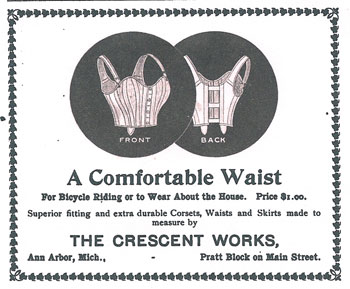Most of the time, I don’t think about gender equity. Along with millions of other American women my age and younger, I’ve benefited from those who spent their lives enduring countless humiliations and setbacks, to achieve for their daughters and nieces and friends what I now enjoy – the luxury of not thinking much about gender equity.

Jean Ledwith King at the March 26, 2011 dinner to rename the Women's Center of Southeastern Michigan in her honor. (Photo courtesy of Wayne Dabney)
On Saturday, about 300 people gathered to pay tribute to one of those women whose work broke ground for the rest of us: Jean Ledwith King. The event was hosted by the Women’s Center of Southeastern Michigan, which has been renamed in her honor.
As a former board member for the center, I expected to see some familiar faces – staff, volunteers and donors I’d known from my relatively short tenure there. But the turnout for Jean went far beyond that. Judges and attorneys, university administrators, elected officials from across the county and state, business leaders and many others came to say thanks for her years of dogged work on behalf of equal opportunity for women. She calls herself a bomb thrower, but on Saturday she was recognized more for the foundation she’s helped build, particularly through her work on Title IX issues related to high school and college athletics.
Jean’s life story is inspiring, as were reflections by the event’s keynote speaker, Olympian Micki King. (Though they aren’t related by blood, they certainly are in spirit.) Their stories made me think of other histories, too – we all have them, closer to home and less notable, perhaps, but also worth honoring as a reminder of how it’s possible to make dramatic societal changes within a lifetime. [Full Story]






